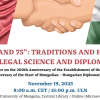In the storm of human rights
2025
May
05
At the 9th Pécs African Studies Conference between 28th and 29th April, more than 25 speakers, coming from all over the world, gave presentations as part of the International Seasons intercultural event series. It was a powerful gathering of minds exploring Africa’s place in the shifting global landscape. From an economic perspective, through geopolitical or cultural factors, to security policy. One of the 7 panels was the "Human rights, Africa and external f/actors” section. The human rights panel was complex and multi-layered, not only in the classical sense of legal protection, but also at the intersections of development, migration, environment, and foreign policy.
Every human has rights.
Do we all have the same rights? No, but there is one thing that almost everyone agrees on: every person should be given basic human rights. What are human rights? Let’s begin with that. According to the United Nations "human rights are rights inherent to all human beings, regardless of race, sex, nationality, ethnicity, language, religion, or any other status. Human rights include the right to life and liberty, freedom from slavery and torture, freedom of opinion and expression, the right to work and education, and many more. Everyone is entitled to these rights, without discrimination.”
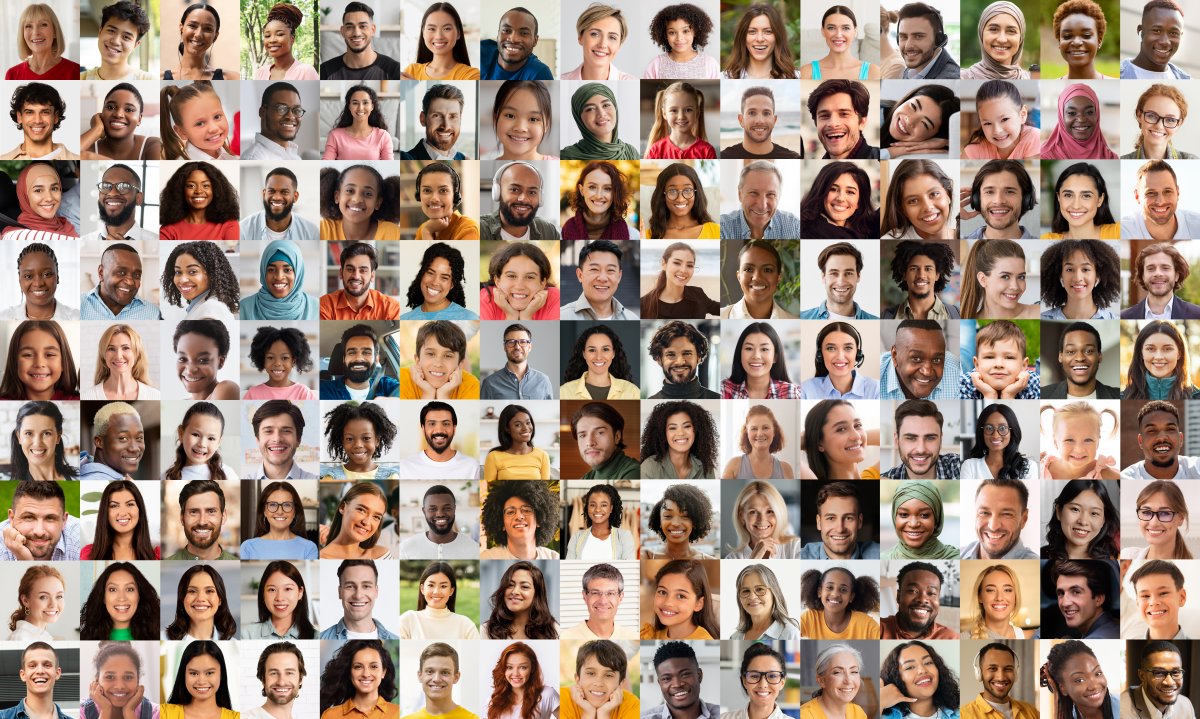
It is quite a dystopian idea, if you ask me. In an ideal world, sure, none of these rights are violated, but we’re far from that. In many ways, the current state of human rights globally is a dystopia in slow motion. Human rights violations, such as genocide, systemic racism, gender-based violence, refugee crises, censorship, or surveillance, paint a grim picture that, if you strip away the reality-TV gloss, mirrors many classic dystopian narratives.
These violations occur on a daily basis.
"Injustice anywhere is a threat to justice everywhere,” said Dr. Martin Luther King Jr., who is probably the most famous African-American civil rights activist.
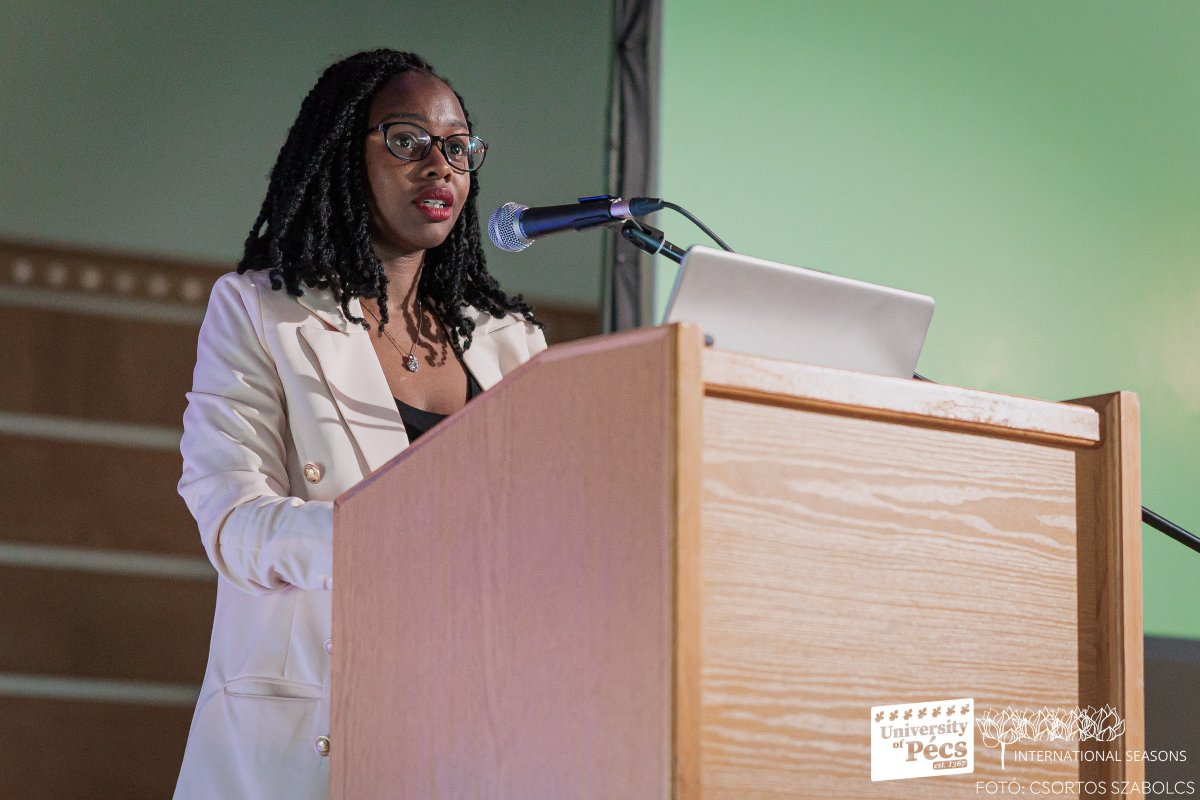
In Africa – and other parts of the world – basic human rights are violated. In Ethiopia, for example, mass killings, sexual violence, and torture are quite common. „Amnesty International estimates
about 600,000 death toll and about 5.5 million people in need of humanitarian assistance,”
said the first presenter of Panel 3, Pamela Chemelil. She added that the ongoing wars (mostly the Tigray conflict) are making it difficult to talk about human rights. Aids have been politicized, and there is limited access to information, even for the media or researchers to monitor the violations.
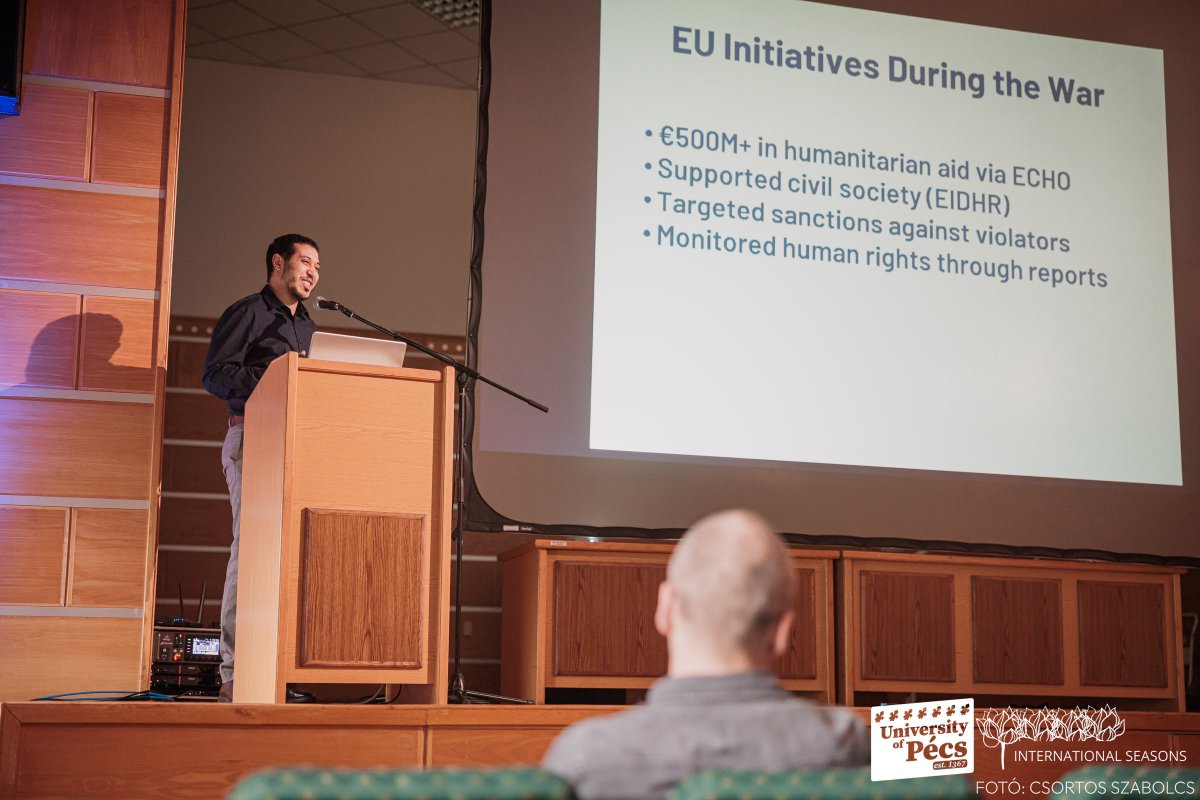
Did you know that South Sudan has been in a civil war since 2013, with two failed peace agreements (2015, 2018)? The European Civil Protection and Humanitarian Aid Operations
has provided €500 million in humanitarian aid.
Ayoub El Alaoui underlined that this begs the following question: has this aid reached the people in need? We don’t know, or we don’t even want to. The speaker mentioned that the imposition of the Western model of democracy is not relevant in the African context, or let's at least try to tailor it to the society in question.
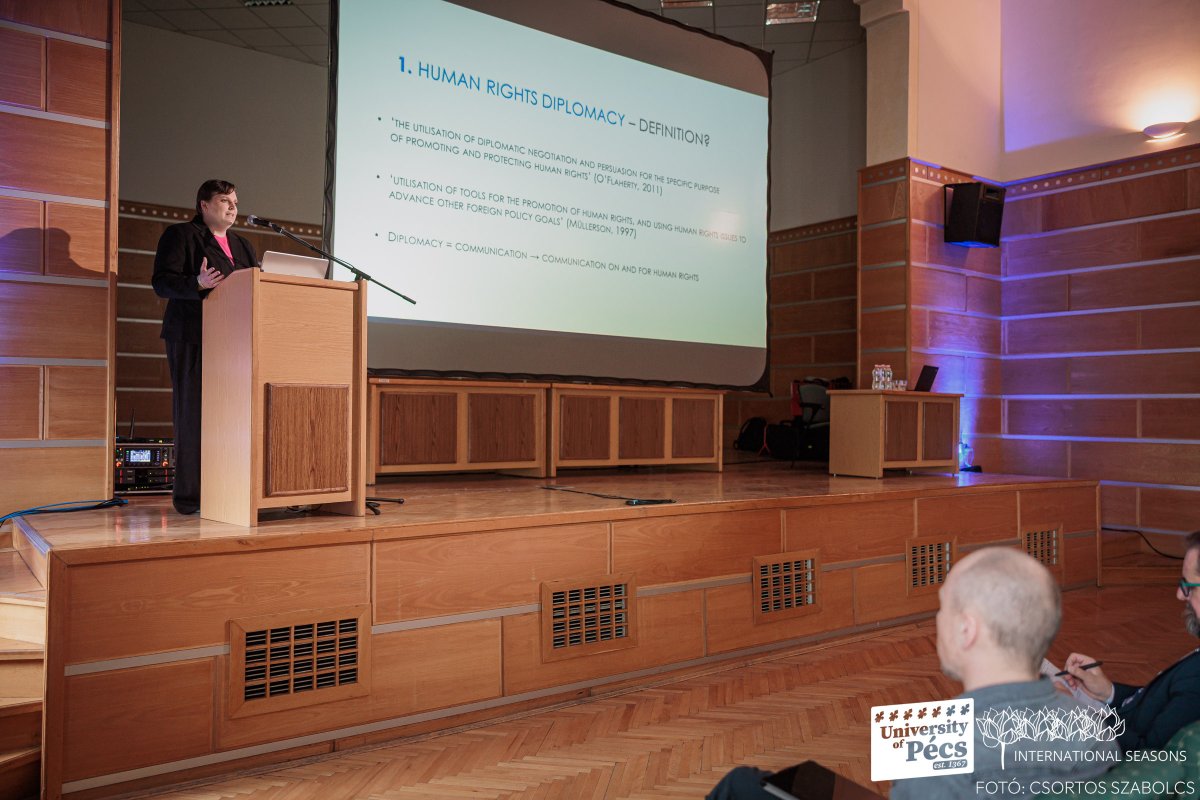
During the conference, we also learned that the European Union's human rights diplomacy is a double-edged weapon: both a shield and an instrument of influence. But why do we say that? As we read on the screen during the presentation of Dr. Melinda Szappanyos, the definition of human rights diplomacy is not quite clear. She presented two interpretations: "The utilisation of diplomatic negotiation and persuasion for the specific purpose of promoting and protecting human rights,” according to O’Flaherty’s book from 2011 and the following one from Müllerson’s book from 1997 which says: "Utilisation of tools for the promotion of human rights, and using human rights issues to advance to advocate foreign policy goals.”
It turns out "human rights clauses" are often not applied when economic interests override principles.
Is this okay? Definitely not, but we’re living in an imperfect world. "Decisions are often not about human rights, but about geopolitical balances," said the presenter. She mentioned that the rise of China is particularly dangerous in this context: Beijing's diplomacy is unconditional, making it an increasingly attractive partner for Africa.
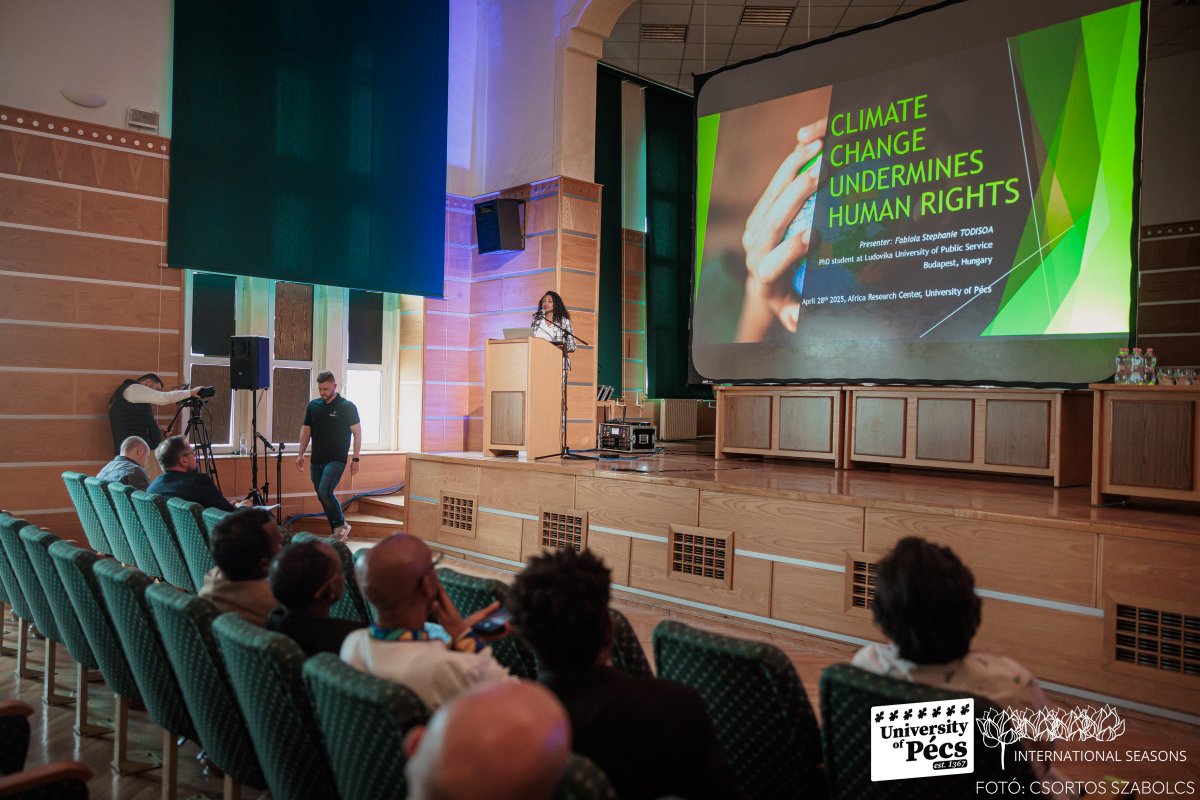
Can you imagine a world without access to clean water? Me neither, but in some countries, this is the reality. Fabiola Stephanie Todisoa presented the human rights dimensions of the climate crisis through the example of Madagascar.
Hundreds of thousands of people are losing their livelihoods to droughts, floods, and cyclones, while the infrastructure is collapsing.
The consequence? The rights to food, water, education, and health care are out of reach for the masses. "Climate change is no longer a future threat; it is a present humanitarian reality in Africa," she added. It's scary to think about, but this is reality.
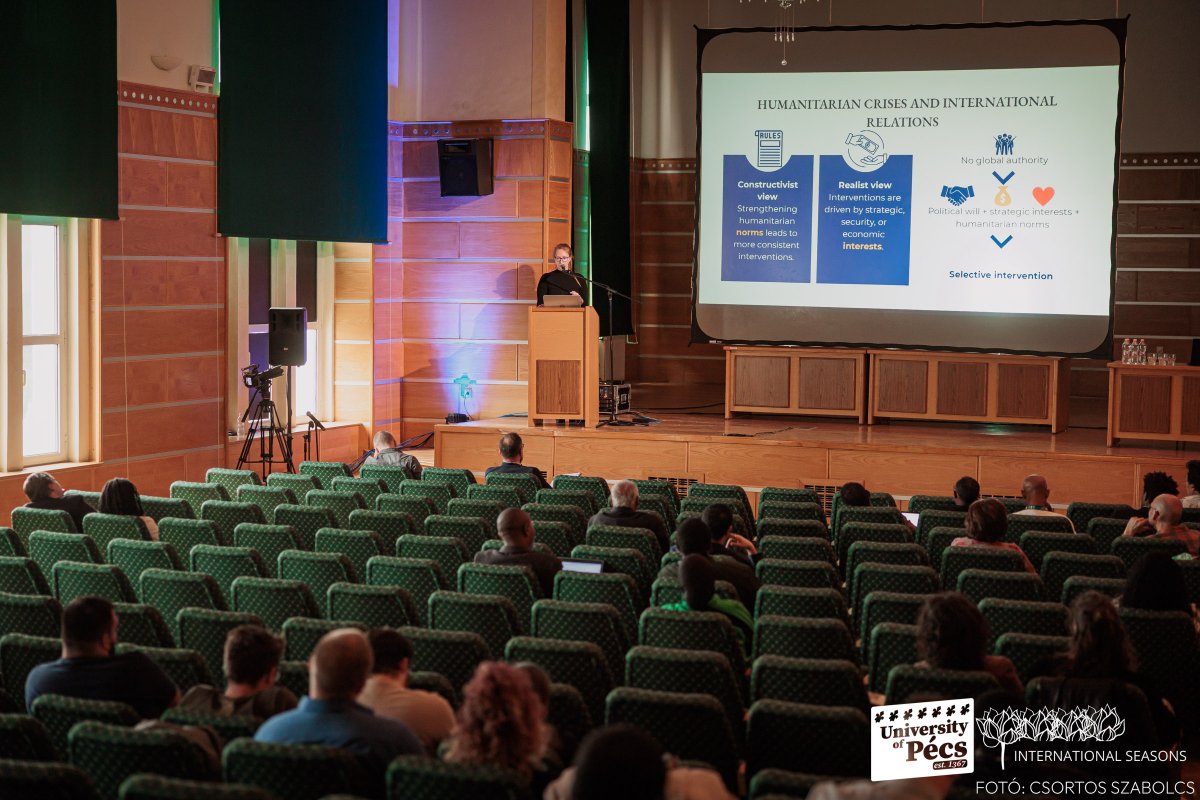
The last presenter of the section, Réka Brigitta Szaniszló, introduced her PhD research on when and why the international community intervenes in humanitarian crises. The presentation focused on one of the deepest and most protracted humanitarian crises on the African continent: the conflict in Eastern Congo, which has now become one of the world's most serious armed and human rights crises. The speaker stressed that global interests are behind the crisis, and that solving it is an international responsibility. The EU's and the world's response so far has been mostly firefighting, and it is time to plan a deep, long-term intervention.
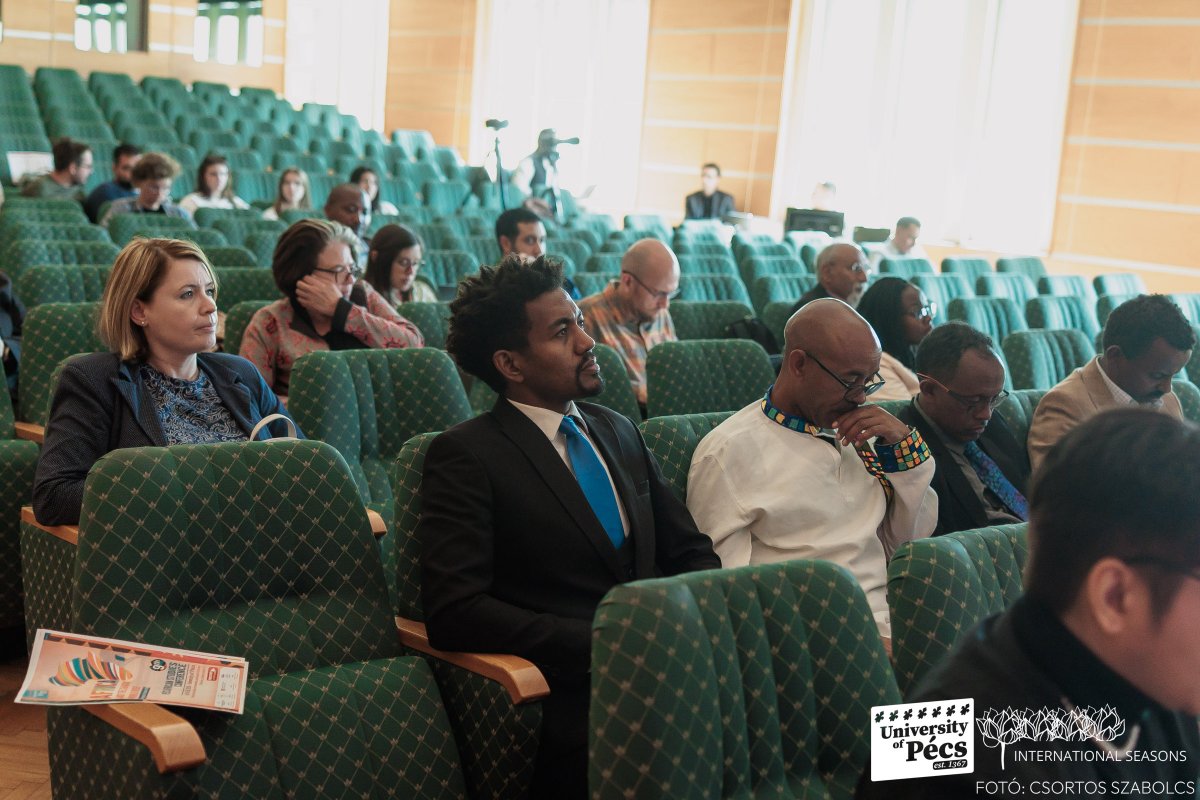
The conference clearly showed that
human rights are not just Western ideals, but basic human needs,
whether you live in the mountains of Ethiopia, the swamps of South Sudan, or the arid fields of Madagascar. Diplomatic instruments - be they sanctions, aid, or political dialogue - can only be credible if they are based on genuine dialogue, mutual respect, and the active involvement of those concerned. Human rights cannot be ''conditional'' but only guaranteed. They cannot be treated merely as a critical issue while other logics prevail in practice. The key to the future is not paternalism but cooperation: a new diplomatic language that not only speaks about human rights but is able to enforce them where they are most violated.
Written by Mercédesz Kovács-Csincsák
- Log in to post comments
University of Pécs | Chancellery | IT Directorate | Portal group - 2020.










